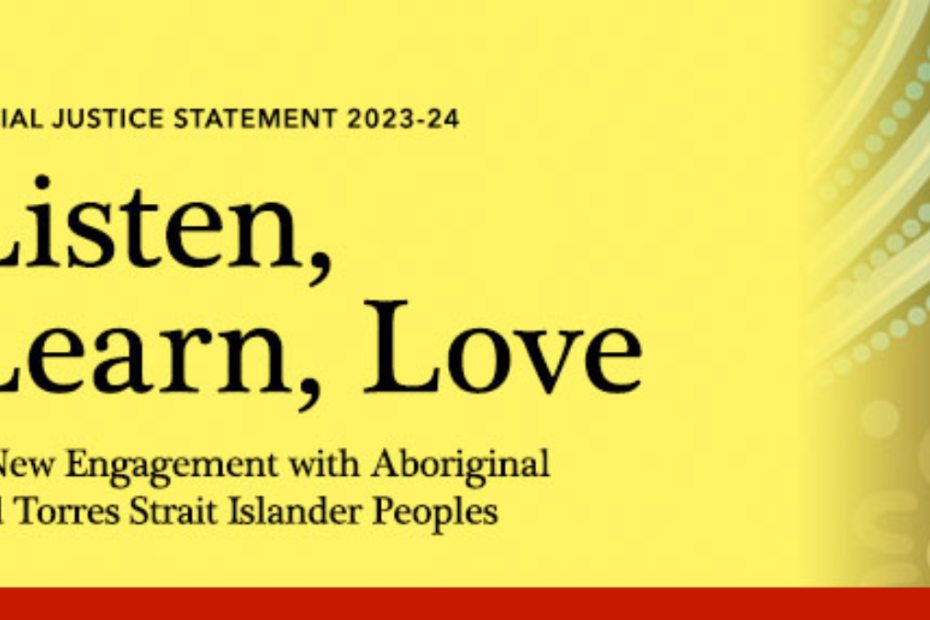Listen, Learn, Love: A New Engagement with Aboriginal and Torres Strait Islander Peoples is not just a statement for Social Justice Sunday nor just for this six weeks leading up to the Voice referendum. It is a document for the next twelve months and far beyond.
We would encourage you to download and read the statement and use it as discussion group or private reflection material. You may wish to use the other resources provided to help stimulate interest and discussion too. The Social Justice Statement and other resources may be found here.
It is important for us to give serious consideration to the Voice referendum coming up on 14 October. Listening to Aboriginal and Torres Strait Islander Peoples about their concerns and their hopes for the future is vital if we are to make an informed decision on 14 October.
However, once the referendum vote happens, do we stop thinking, reflecting and listening? We hope not!
If we are to take the invitation of this year’s Social Justice Statement seriously, we all need to find ways to build new relationships with local First Nations Peoples. Here’s some advice on how to reach out to local elders and First Nations organisations:
- Talk to your local Council about locals to contact. Many Councils employ at least one staff member to work with local First Nations communities. Ask them for advice on how to build good relationships and what local groups you might approach.
- Don’t come with a plan or agenda ready to present to local First Nations Peoples. Be prepared to listen more and talk less. Take time to build trust.
- Participating in events organised by First Nations Peoples is a good way to start. Your local Council might advertise these events. Local and State and Territory reconciliation groups also have bulletins which advertise events. Australians for Native Title and Reconciliation (ANTaR) has State, Territory and national bodies which organise events too. Find out how to subscribe to their bulletins.
- If your diocese has an Aboriginal Catholic Ministry, connect with them to find out how you can support them and participate in their programs.
- Often, a handful of elders and community members do much of the public engagement work. It can be very demanding for them. Be careful that you do not ask too much of them and try to build relationships with as many different First Nations Peoples as possible. Try not to anoint a “favourite”.
- If we want to embrace the core message of this year’s Statement, we should be careful to ensure that we are offering service to First Nations Peoples rather than effectively asking them to serve our needs. Find out what their priorities are and ask them how you can support them in working on those priorities.
